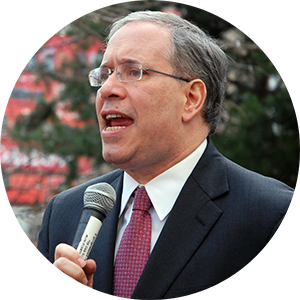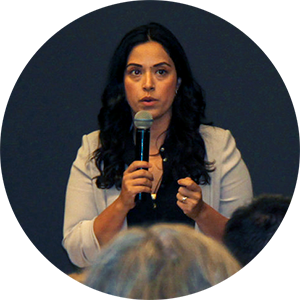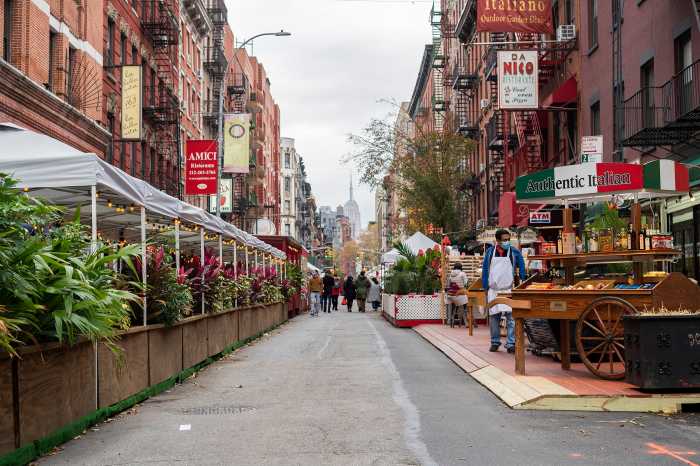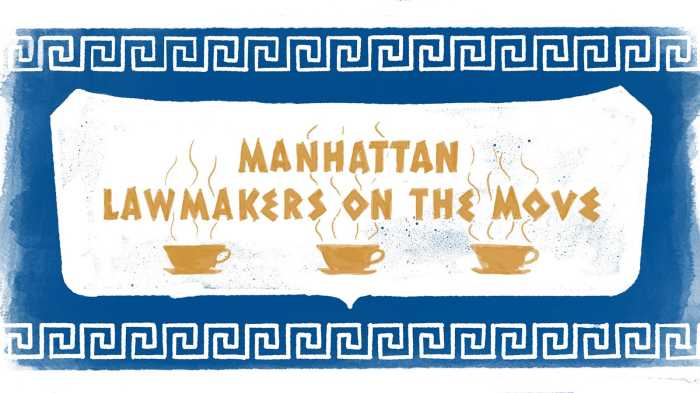New York is, objectively, in a much better position than it was a few months ago. Our daily infection rate is low and stable, and the number of active cases in the state is steadily going down. On average, our daily positive test rate has been hovering between 1 and 1.2 percent for weeks.

Last night, however, City Comptroller Scott Stringer (D) made sure to remind us that we’re not out of the woods yet. We won’t be for a while.
On July 27, Stringer hosted a virtual town-hall on the status of the COVID-19 crisis in New York. The meeting also featured State Senator Brad Hoylman (D-Chelsea, Midtown), Councilmember Carlina Rivera (D-East Village, Gramercy Park), Assemblymember Linda Rosenthal (D-Upper West Side, Hell’s Kitchen) and New York Attorney General Letitia James (D).
The lawmakers began by summarizing what they’ve been doing to help New York survive the pandemic. Since the virus reached our shores, we’ve seen myriad profiteers and scammers try to take advantage of the situation; some have marketed fraudulent cures and treatments for the virus, while others have tried to sell PPE at exorbitant prices. For months, James’s office has worked tirelessly to suppress them.

“We’ve sent out more than 1,600 cease and desist letters to individuals and businesses engaging in price gouging, and we’re working with online retail and marketing companies to remove fraudulent posts,” said James.
Rivera, meanwhile, has worked to protect the City’s small business ecosystem. Months ago, she introduced a bill to suspend “personal liability” provisions for commercial leases. The bill, which passed in May, prevents landlords from seizing commercial tenants’ personal assets as punishment for defaulting on their leases.

“When people have to lose what is essentially their hopes and dreams by closing their restaurants, their mom and pop shops, we’ve tried to make sure that they’re also not losing their personal savings,” said Rivera.
Hoylman and Rosenthal have expended effort to protect residential tenants. Earlier this year, they introduced the Tenant Safe Harbor Act, which passed in early July. The act protects tenants who have been affected by COVID-19, ensuring that none of them can be evicted for unpaid rent.
Rosenthal expressed gratitude that the Democrats controlled the State Legislature this session, enabling her and Hoylman to get their legislation through unobstructed.

“It’s good to have the Senate and the Assembly both run by the majority Democrats,” said Rosenthal. “Before, you begrudgingly got something out of the Republican State Senate; now we can work closer together.”
But all of the electeds agreed that they still have a lot of problems to address. The biggest, arguably, is the fact that schools will reopen in a matter of weeks. By Stringer’s account, the Department of Education (DOE) still doesn’t have a concrete plan to open schools safely. In particular, Stringer has called on them to ensure access to quality remote learning and reminagine school space to allow for social distancing.
“I’m very concerned that DOE is in paralysis,” said Stringer. “They are not conducting daily briefings for parents; instead, there is this sense of, ‘We have this plan that is not workable, take it or leave it.’ And that is exactly what parents don’t need.”
They also stressed the need to prepare ourselves for the possibility of a second wave. The first wave swiftly overwhelmed our hospitals, which didn’t have nearly enough supplies and staffing to handle the influx of patients.
“I have been focused on equipping our hospital system for with funding and resources it needs to care for all New Yorkers,” said Rivera. “Hospitals need to start planning to address the issues that we saw in the spring. We had insufficient stockpiles of medical supplies and PPE, nowhere near the number of beds and staff we needed, and a serious lack of centralized management of supply chains and patient loads.”
Finally, the electeds acknowledged that New York is still in a dire state economically. By the end of June, the City’s unemployment rate clocked in at a staggering 20.4 percent, according to the Bureau of Labor Statistics.
In order to rebuild our economy, said Stringer, we need to conduct a “slow, purposeful” reopening to adjust to our new reality.
“This is our opportunity to reimagine the New York City economy,” said Stringer. “It’s not something that we should do; it’s something that we have to do. We have to think about moving retail space into our streets, especially during warm weather. We have to have a school plan that meets the childcare needs of all New Yorkers in the next thirty days. And we need to have decisive leadership right now to deal with what will happen when evictions begin.”
Stringer ended the meeting on a reassuring note, expressing hope that New York is resilient enough to make it through the crisis.
“The good news is that we New Yorkers have seen this before,” said Stringer. “Take the fiscal crisis in the 1970s; the City was on the verge of bankruptcy, and many people fled New York. But New York came back bigger and stronger than ever. We saw that again after 9/11, when we stayed together and rebuilt the City. We did it again after the recession of 2008, when people stayed and started to rebuild businesses and the like. That is what we as New Yorkers have to come together and do.”








